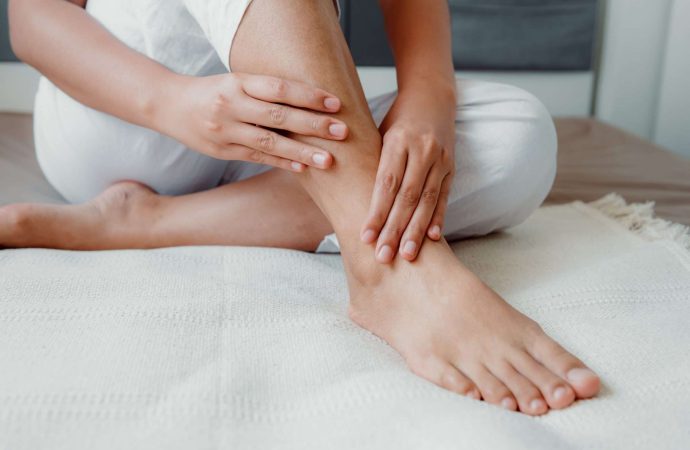Introduction Swollen ankles can be a pesky problem, causing discomfort and hindering mobility. While many are quick to attribute this swelling to the usual suspects like injury or fluid retention, there are some lesser-known culprits that might be behind this uncomfortable condition. Understanding these surprising factors can help you address the issue more effectively. Let’s
Introduction
Swollen ankles can be a pesky problem, causing discomfort and hindering mobility. While many are quick to attribute this swelling to the usual suspects like injury or fluid retention, there are some lesser-known culprits that might be behind this uncomfortable condition. Understanding these surprising factors can help you address the issue more effectively. Let’s delve into the unexpected reasons why your ankles might be swollen. Explore More About Health Problems And Their Solutions (Which Disease Usually Begins First)
1. Poor Posture
Believe it or not, your posture plays a significant role in the health of your ankles. When you slouch or maintain poor posture for extended periods, it can disrupt the natural alignment of your body, including your ankles. This misalignment can lead to added pressure on your ankles, causing swelling over time. So, if you find yourself slumping at your desk or hunching over frequently, it might be time to straighten up for the sake of your ankle health.
2. Prolonged Sitting or Standing
Whether you have a desk job that requires long hours of sitting or a profession that keeps you on your feet all day, prolonged periods of either can contribute to swollen ankles. When you sit for too long, blood flow to your lower extremities can be restricted, leading to fluid retention and swelling. Conversely, standing for extended periods can cause blood to pool in your ankles, exacerbating swelling. Taking regular breaks to stretch and move around can help alleviate this issue.

Image by: yendex.com
3. Inadequate Footwear
The shoes you wear can have a significant impact on the health of your ankles. Ill-fitting or unsupportive footwear can contribute to poor alignment, putting strain on your ankles and leading to swelling. High heels, in particular, can tilt your body forward, putting excessive pressure on the front of your feet and ankles. Opting for shoes with proper arch support and cushioning can help prevent swelling and provide better overall ankle support.
4. Medications
Certain medications can have side effects that include swelling in the ankles. This is particularly common with drugs that affect blood pressure, hormones, or inflammation. If you’ve noticed swelling in your ankles coinciding with starting a new medication, it’s essential to discuss this with your healthcare provider. They may be able to adjust your dosage or prescribe an alternative medication to alleviate this side effect.

Image by: yendex.com
Culprits Contributing to Swollen Ankles:
| Culprit | Impact |
|---|---|
| Poor Posture | Disrupts natural alignment, leading to added pressure |
| Prolonged Sitting | Restricts blood flow, causing fluid retention and swelling |
| Inadequate Footwear | Contributes to poor alignment and strain on ankles |
| Medications | Side effects may include swelling in the ankles |
| Dietary Factors | High sodium intake can lead to water retention and swelling |
5. Dietary Factors
What you eat can also impact the likelihood of experiencing swollen ankles. Consuming foods high in sodium can lead to water retention, contributing to ankle swelling. Additionally, dehydration can exacerbate this issue, as insufficient hydration can cause your body to retain water in an attempt to conserve it. Aim to maintain a balanced diet low in sodium and drink plenty of water throughout the day to help prevent swelling.
In conclusion, swollen ankles can stem from a variety of surprising culprits beyond the usual suspects. By addressing factors such as posture, prolonged sitting or standing, footwear choices, medications, and dietary habits, you can better manage and prevent swelling in your ankles. If you’re experiencing persistent or severe swelling, it’s always best to consult with a healthcare professional for personalized advice and treatment options.
















